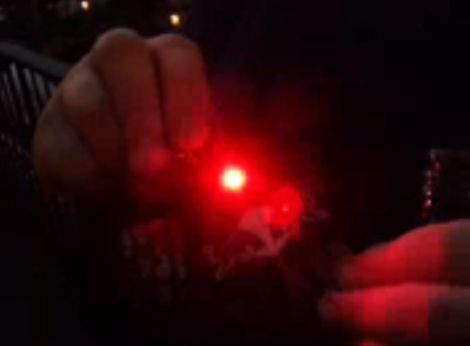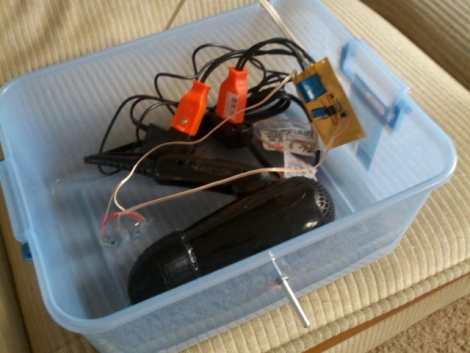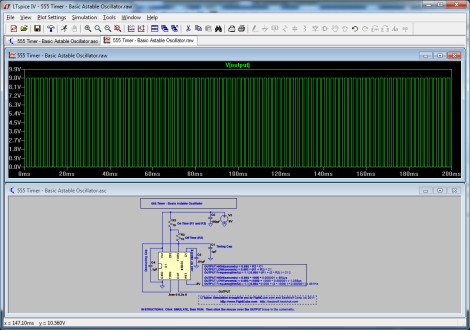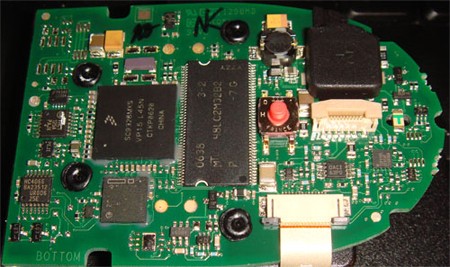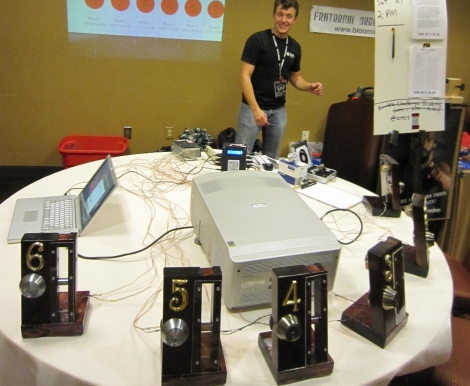
The guys from Bloomington’s Fraternal Order of Lock Sport (FOOLS) sure know how to throw a party! At this year’s DerbyCon event down in Louisville, the group put on an awesome event that combined lockpicking and drinking – what could be better?
The Rumble Challenge is lock picking game where six people compete head to head for the best time. Whenever a competitor masters his lock, the competition is paused so that each player has a chance to take a shot from their air-powered shot dispensing machine. Once everyone has imbibed, the next round starts with the competitors picking up where they left off, in an effort to be the next to successfully open his lock.
The game is controlled by an Arduino, which both times the competition and senses when the locks have been opened. The Arduino relays this data to a computer, which uses a projector to display the contestant’s scores on a big screen. As an added bonus, FOOLS member [dosman] added loud rumble motors to the locking mechanisms in order to throw competitors off their game.
The contest sounds like a ton of fun – we’re bummed that we missed it. If you want to see how the game was put together, check out [dosman’s] build log over at the Bloominglabs wiki.


